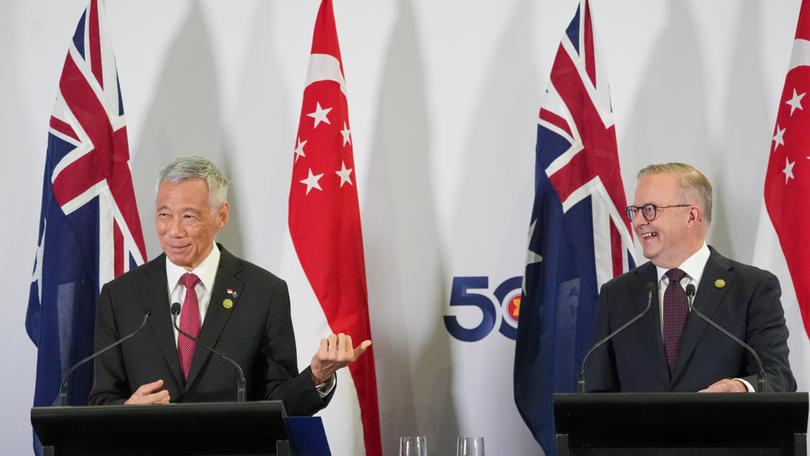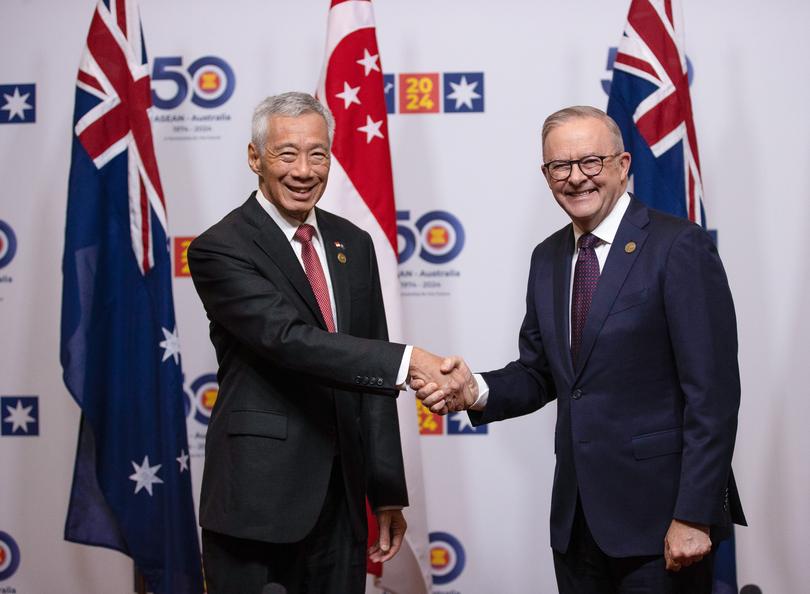Taylor Swift and Paul Keating intrude on Albanese’s ASEAN business focus
A stoush over Taylor Swift and an intervention from Paul Keating have bared the underlying tensions within southeast Asian countries as leaders gather in Melbourne.

A stoush over Taylor Swift has bared the underlying tensions within ASEAN after revelations Singapore paid the superstar to perform exclusively in its country and nowhere else in southeast Asia.
Singapore’s Prime Minister Lee Hsien Loong confirmed his government had given Swift “certain incentives” – reported to be $3 million – to make his country her only stop in the region.
Politicians from Thailand and the Philippines have taken swipes at the city-state over the exclusive deal.
Sign up to The Nightly's newsletters.
Get the first look at the digital newspaper, curated daily stories and breaking headlines delivered to your inbox.
By continuing you agree to our Terms and Privacy Policy.“It has turned out to be a very successful arrangement. I don’t see that as being unfriendly,” Mr Lee said on Tuesday, after meeting Anthony Albanese in Melbourne.

Mr Albanese wouldn’t buy into the bad blood, saying only that Swift was welcome in Australia – the Prime Minister attended one of her concerts last month – and that “where she plays is a matter for her and a matter for other nations”.
Leaders attending the ASEAN-Australia special summit are also navigating differences around China while former prime minister Paul Keating has made a blistering intervention.
A day after Foreign Minister Penny Wong warned countries in the region must build up “preventative architecture” to prevent misunderstandings escalating into conflict, a Chinese boat collided with a Philippines coast guard vessel in a disputed area of the South China Sea.
Mr Keating accused Senator Wong of rattling “the China can”, aided by top spooks Mike Burgess and Andrew Shearer with last week’s revelations about foreign intelligence agencies recruiting a former politician.
“These people display utter contempt for the so-called stabilisation process that the Prime Minister had decided upon and has progressed with China. And will do anything to destabilise any meaningful rapprochement,” Mr Keating said in a statement.
Asked whether Australia was sending mixed messages, Mr Albanese said: “No.”
On Monday, Malaysian leader Anwar Ibrahim said his “fiercely independent” country did not want others to impose on it their own problems with China.
Mr Keating claimed this had “dropped a huge rock into Wong’s pond by telling Australia not to piggyback Australia’s problems with China onto ASEAN”.
Mr Lee said while ASEAN countries had a “common position” on the South China Sea as a vital trading route, they took different national perspectives and positions depending on their geographic location.
While the geostrategic – and musical – tensions are an undercurrent to the special summit, Australia is focused on boosting trade with the fast-growing region.
Some of the nation’s biggest business names have been tapped to help companies increase their reach into the region as the Government looks for opportunities to diversify trade and reduce reliance on China.
The new “business champions” are each focused on a different ASEAN country plus East Timor.
The Government has also set up a $2 billion investment fund, expanded its “landing pads” to Jakarta and Ho Chi Minh City and given a $140 million boost to an infrastructure program.
Business Council of Australia chief executive Bran Black was confident the actions – recommended by businessman Nicholas Moore last year in his blueprint for how to expand two-way investment in the region – would have tangible results.
“It’s so important to focus on what’s practical. Somebody once said to me that vision without delivery is just a hallucination,” he said.
“I think that what we’re seeing with this strategy is an opportunity to turn the vision into something very real.”

